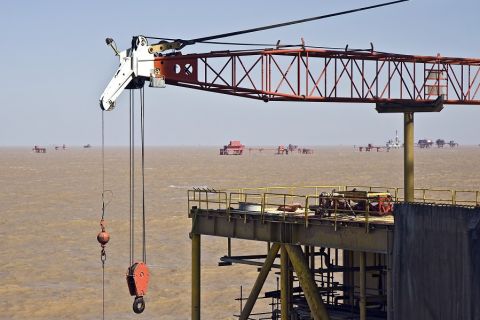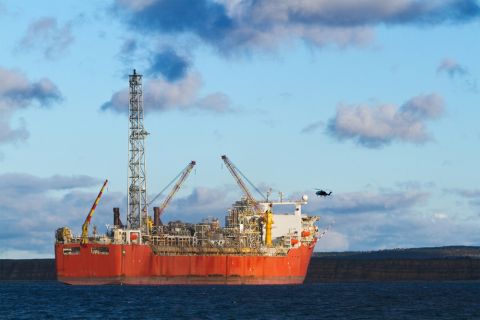President Joe Biden’s administration on Nov. 28 proposed rules aimed at limiting methane leaks from oil and gas drilling on public lands, Washington's latest move to crack down on emissions of the potent greenhouse gas.
The proposal complements new rules the U.S. government already proposed for the industry on private lands. It would place monthly limits on flaring and require oil and gas companies to undertake methane leak detection programs for operations on federal lands, where nearly a tenth of U.S. oil and natural gas production takes place, primarily in Western states.
The U.S. Bureau of Land Management (BLM) said the rules would help prevent gas from being wasted and boost taxpayer returns.
“This draft rule is a common-sense, environmentally responsible solution as we address the damage that wasted natural gas causes,” BLM Director Tracy Stone-Manning said in a statement.
Methane is the main component of natural gas and tends to leak into the atmosphere from drill sites and pipelines. It is about 80 times more powerful at trapping heat than carbon dioxide during a 20-year timeframe.
The Interior Department said venting and flaring activity from production on public lands has significantly increased over several decades.
Flaring, or deliberately burning gas produced as a byproduct to oil, releases carbon dioxide into the atmosphere, while venting releases unburned methane. Oil drillers tend to flare or vent gas when they lack pipelines to move it to market, or when prices are too low to make transporting it worthwhile.
The proposed rule would require each applicant for a drilling permit to submit a plan detailing how it would minimize methane waste. BLM could hold up the permit application if it finds the plan inadequate.
An oil and gas industry group said federal methane regulation should be handled by the EPA, which has been crafting its own rules.
“The issue is not as cut and dried as this regulation would make it seem as there are many reasons to vent and flare gas, such as safety concerns and connectivity issues,” Mallori Miller, vice president of government relations for the Independent Petroleum Association of America, said in an email. “Of course, it will always be in the best interest of a producer to capture and sell a commodity on the marketplace when at all possible.”
The new rules follow years of legal wrangling over methane regulations crafted by former President Barack Obama's administration. BLM said its regulation focused on waste prevention, an area over which it has clear legal authority.
The rules will cost oil and gas companies around $122 million per year to implement but will give them $55 million per year of recovered gas. That gas will also boost royalty revenues paid to U.S. coffers by $39 million per year, according to BLM.
“There’s no reason for oil and gas companies to waste a publicly owned resource, much less a powerful greenhouse gas like methane,” Aaron Weiss, deputy director of the Center for Western Priorities, said in an email.
Recommended Reading
Oceaneering Won $200MM in Manufactured Products Contracts in Q4 2023
2024-02-05 - The revenues from Oceaneering International’s manufactured products contracts range in value from less than $10 million to greater than $100 million.
E&P Highlights: Feb. 5, 2024
2024-02-05 - Here’s a roundup of the latest E&P headlines, including an update on Enauta’s Atlanta Phase 1 project.
CNOOC’s Suizhong 36-1/Luda 5-2 Starts Production Offshore China
2024-02-05 - CNOOC plans 118 development wells in the shallow water project in the Bohai Sea — the largest secondary development and adjustment project offshore China.
TotalEnergies Starts Production at Akpo West Offshore Nigeria
2024-02-07 - Subsea tieback expected to add 14,000 bbl/d of condensate by mid-year, and up to 4 MMcm/d of gas by 2028.
US Drillers Add Oil, Gas Rigs for Third Time in Four Weeks
2024-02-09 - Despite this week's rig increase, Baker Hughes said the total count was still down 138 rigs, or 18%, below this time last year.




